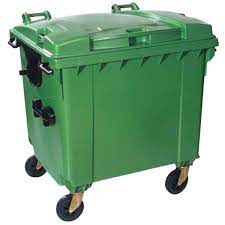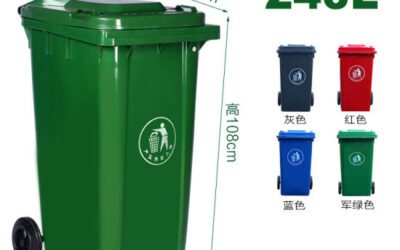Introduction
Waste management is a critical aspect of environmental sustainability and public health. In Kenya, like many other developing countries, the proper management of waste presents a significant challenge. However, its importance cannot be overstated, as it directly impacts the environment, public health, and socio-economic well-being.
Current State of Waste Management in Kenya
Kenya faces various challenges in waste management, including inadequate infrastructure, limited resources, and a rapidly growing population. Consequently, improper waste disposal is rampant, leading to pollution, environmental degradation, and health hazards.
Environmental Impact
Improper waste disposal has severe environmental consequences in Kenya. Dumping of waste in open areas contaminates soil and water sources, leading to land degradation and water pollution. Additionally, burning of waste releases harmful toxins into the air, further exacerbating air pollution.
Health Risks
The improper handling of waste poses significant health risks to Kenyan citizens. Open dumping sites become breeding grounds for disease vectors such as mosquitoes and rats, increasing the spread of diseases like malaria and dengue fever. Moreover, exposure to toxic chemicals from improperly disposed waste can lead to respiratory problems and other illnesses.
Social and Economic Implications
The consequences of poor waste management extend beyond the environment and health to socio-economic aspects. Communities living near dumpsites suffer from reduced property values and diminished quality of life. Furthermore, tourism, agriculture, and other industries are adversely affected, leading to economic losses and hindering development.
Government Initiatives and Policies
The Kenyan government has implemented various initiatives and policies to address waste management challenges. These include the National Environmental Management Authority (NEMA) Act and the National Solid Waste Management Strategy, aimed at promoting sustainable waste management practices and enforcing regulations.
Community Involvement
Community participation is crucial in improving waste management in Kenya. Local initiatives such as community clean-up campaigns and recycling projects play a vital role in waste reduction and environmental conservation. Empowering communities to take ownership of waste management fosters sustainability and resilience.
Technological Solutions
Innovative technologies offer promising solutions to enhance waste management in Kenya. From waste-to-energy plants to mobile applications for waste collection, technology can improve efficiency and reduce environmental impact. Embracing these solutions can revolutionize waste management practices in the country.
Education and Awareness
Raising public awareness and promoting environmental education are essential in changing attitudes and behaviors towards waste management. Educational campaigns, school programs, and community workshops can empower individuals to adopt responsible waste disposal habits and participate in recycling efforts.
Collaboration with NGOs and International Organizations
Partnerships with non-governmental organizations (NGOs) and international entities are instrumental in supporting Kenya’s waste management efforts. Organizations like the United Nations Environment Programme (UNEP) provide technical assistance, funding, and expertise to strengthen waste management systems and promote sustainability.
Success Stories and Best Practices
Despite the challenges, Kenya has witnessed success stories in waste management. Initiatives such as the “Clean Cities” project in Nairobi and the establishment of recycling cooperatives showcase effective strategies for waste reduction and resource recovery. By sharing best practices and lessons learned, Kenya can replicate success on a broader scale.
Future Outlook
The future of waste management in Kenya hinges on collective action and sustainable practices. With continued government commitment, community engagement, technological innovation, and international collaboration, there is hope for significant improvement. By prioritizing proper waste management, Kenya can protect its environment, safeguard public health, and foster sustainable development.
Conclusion
In conclusion, proper waste management is paramount for Kenya’s sustainable development and well-being. Addressing the challenges of waste disposal requires a multi-faceted approach involving government intervention, community participation, technological innovation, and global cooperation. By prioritizing sustainable practices and fostering a culture of environmental stewardship, Kenya can mitigate the adverse effects of improper waste management and pave the way for a cleaner, healthier future.
FAQs
- Why is waste management important in Kenya? Proper waste management is crucial in Kenya to protect the environment, public health, and socio-economic well-being.
- What are the environmental impacts of poor waste management? Poor waste management leads to land degradation, water pollution, and air contamination, posing severe environmental risks.
- How can communities contribute to waste management efforts? Communities can participate in waste reduction, recycling, and clean-up initiatives to improve waste management practices.
- What role do technological solutions play in waste management? Innovative technologies offer efficient waste disposal methods and resource recovery, contributing to sustainable waste management practices.
- How can individuals support proper waste management in Kenya? Individuals can adopt responsible waste disposal habits, participate in recycling programs, and advocate for better waste management policies and practices.




0 Comments